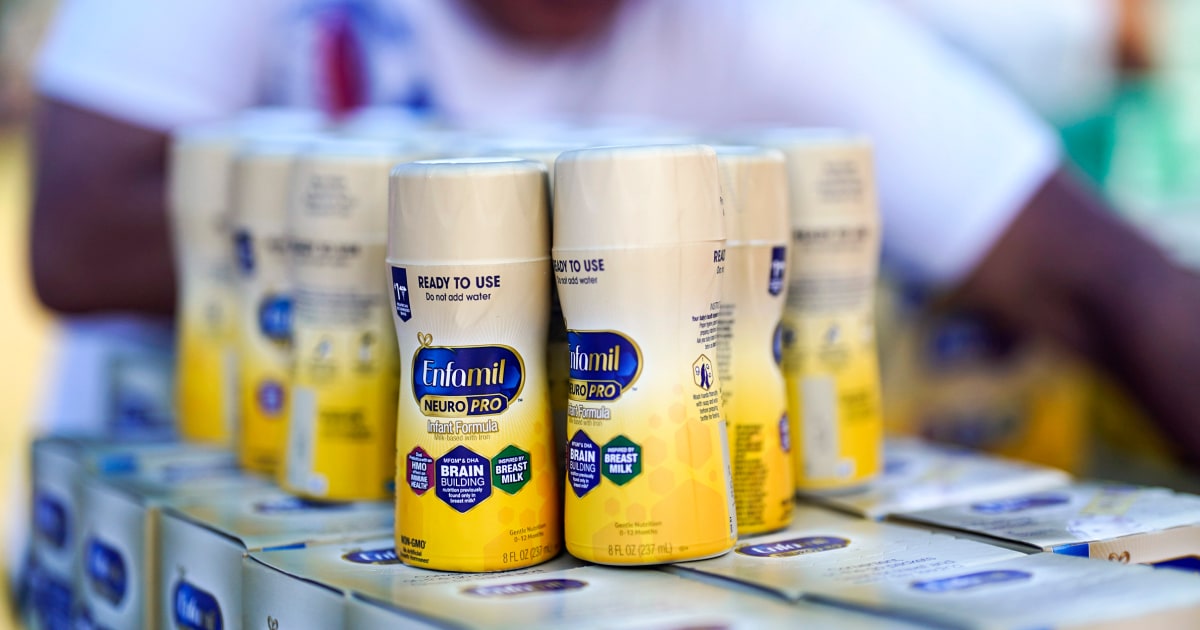
The nationwide baby formula shortage that has sent parents scrambling for supplies has been building in earnest for more than two months, new data shows.
Retailers that sell baby formula have been losing out on sales due to supply constraints since the first week of March, according to NielsenIQ’s on-shelf availability barometer, a metric that shows how a product’s revenue compared to retailer expectations.
The metric is a proxy for a product’s availability on store shelves, and the data shows that nationwide baby formula availability has fallen steadily from November to April 30, the most recent week of data available. But constraints tightened in March, after the recall of major formula brands.
The baby formula shortage is also more acute in certain states, with Iowa, Kentucky, Louisiana and West Virginia showing the lowest on-shelf availability rates in the country. Colorado, New Mexico and Arkansas have the highest formula availability rates.
The U.S. Food and Drug Administration began investigating baby formula in February after four infants contracted serious infections and one died. And in March, Abbott Laboratories recalled several formula brands and shut down the company’s Michigan plant. Abbott announced an agreement with the FDA to reopen the plant on Tuesday.
The formula crunch is especially difficult for new parents, as data from the Centers for Disease Control and Prevention show that approximately 2 in 10 newborns receive formula in their first two days of life.
FDA commissioner Robert Califf said Thursday that parents should see supply relief in the coming days, thanks to increased manufacturing and a bump in formula imports. President Joe Biden invoked the Defense Production Act to ease the shortage on Wednesday, which means the federal government will compel formula production suppliers to prioritize formula manufacturers over other customers when it comes to goods and and resources.
JoElla Carman contributed.
Source: | This article originally belongs to Nbcnews.com










